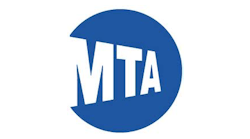New York Gov. Kathy Hochul signed two bills this week aimed at making state and local government actions more transparent. One requires the release of documents to be discussed at public meetings be available 24 hours in advance and the second will publish more data from the Metropolitan Transportation Authority (MTA) on an easily accessible state portal.
"There's no excuse for keeping New Yorkers in the dark on the actions governments take to help their constituents, and we've been committed to greater transparency since day one," said Gov. Hochul. "These pieces of legislation will require important local government documents and MTA data to be properly available for constituents to read and utilize. New Yorkers should be informed about the work government does for them every day, but we have to make it easier for them to get that information."
S.1150-A/A.1228-A, the Open Meetings Law, is “intended to empower the public through the accessibility of meetings of public bodies.” Documents such as proposed rules, regulations or resolutions will be available by request and posted publicly at least 24 hours prior to discussions at an open meeting. A prior law allowed the agency or department to determine how far in advance documents could be posted.
New York Sen. Anna M. Kaplan (D-7-North Hills) said the “simple legislation” will thwart public entities “using a weakness” in the current law to reduce transparency in government.
S.4625-A/A.1442-B, the MTA Open Data Act, requires data from MTA to be published in open data formats that are easily accessed, downloaded and manipulated by the public. This information would include MTA’s budget, finances, routes and service to be published on its own website, as well as on the state’s open data portal.
One of the legislation’s sponsors, New York Sen. Leroy Comrie (D-14-St. Albans), believes the newly established law will “bridge the trust gap between the MTA and the riding public.”
“The largest public authority in our state, responsible for thousands of jobs, billions of dollars in capital investment and a key contributor to our economy, has to be reliable and accountable. The MTA Open Data Act is a step in the right direction to providing a more easily digestible way to review the MTA's finances, contracts and overall performance,” said Sen. Comrie.
The legislation codifies a March 2013 Executive Order (EO) signed by then Gov. Andrew Cuomo into law. The EO established an Open Data Handbook and the state’s open data portal, as well as mandated MTA publish its data in easy to access formats.
Reinvent Albany, an organization that advocates for open, accountable government in New York State, credits MTA with making strides in the release of real-time service data to third-party entities, such as Google, but its “open data related to contracts and finances has lagged and financial information is largely provided in inaccessible PDFs.”
The law requires MTA to designate a data coordinator and establish a schedule for making the publishable data available within 180 days. The authority will then have three years to make that data publicly available.
Riders Alliance Policy & Communications Director Danny Pearlstein issued a statement applauding the signing of the legislation.
“Better transit hinges on greater transparency. Opening up MTA data to public scrutiny will help deliver fast, frequent, reliable, accessible and affordable commutes for millions of New Yorkers,” said Pearlstein.

Mischa Wanek-Libman | Group Editorial Director
Mischa Wanek-Libman is director of communications with Transdev North America. She has more than 20 years of experience working in the transportation industry covering construction projects, engineering challenges, transit and rail operations and best practices.
Wanek-Libman has held top editorial positions at freight rail and public transportation business-to-business publications including as editor-in-chief and editorial director of Mass Transit from 2018-2024. She has been recognized for editorial excellence through her individual work, as well as for collaborative content.
She is an active member of the American Public Transportation Association's Marketing and Communications Committee and served 14 years as a Board Observer on the National Railroad Construction and Maintenance Association (NRC) Board of Directors.
She is a graduate of Drake University in Des Moines, Iowa, where she earned a Bachelor of Arts degree in Journalism and Mass Communication.




